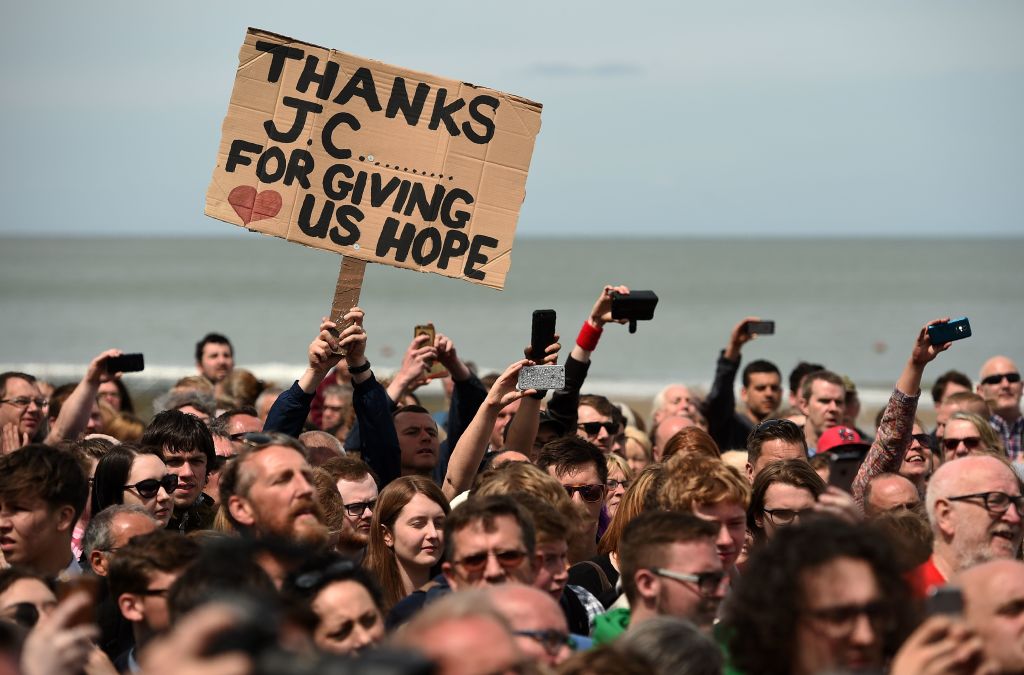Labour’s defeat is so terrible that it provides the kind of creative destruction that could save the party. It will be extremely difficult for the Corbynites to argue with much authority that one more push or slightly nicer newspapers would have got them over the line when the party hasn’t had a result this bad since 1935. But does the failure of Jeremy Corbyn necessarily mean that the ‘moderates’ in the party are going to be able to rescue it?
In 2015, centre-left Labour MPs were confident that the members were so bruised by what they’d heard on the doorstep that they would happily elect a leader who took the party back to the middle ground of politics. For about a week, this view reigned supreme and allowed the Liz Kendall leadership campaign to gain quite so much traction in Westminster. But it turned out that members had not heard the same thing as those MPs had: they wanted the party to pursue a purer politics instead and so Jeremy Corbyn won and Kendall only got 4.5 per cent. The moderates have not had any success in changing the narrative in the party since then, with a failed leadership coup in 2016, a botched split at the start of this year, and angry tweeted threats about red lines which were never followed through. The omens do not look particularly favourable for these MPs getting their act together now.
But as one senior moderate explained to me, the ball isn’t in their court anyway. It’s down to the National Executive Committee how the succession works. There could be a reasonably short timetable for replacing Corbyn, or a drawn-out review of why the party lost. There is (as you might expect) a split among moderates about which would favour them. Some think that the party membership is going to spend the short term in that stage of grief where denial and anger are the main emotions and therefore there will be no real introspection, rather just an attempt to blame anyone else for what happened. Others argue that a long build-up to a contest will merely allow the Corbynites to regroup and double down with their arguments among the members.
It’s difficult to know which timetable would work better to save the Labour Party, though private polling carried out a few months before the election did still show a majority of members saying they would rather their party lost an election than compromise its principles, which suggests that there isn’t much hope either way.
If the members don’t recognise that a defeat on this scale is a sign that the brand of socialism espoused by Corbyn, John McDonnell and their allies has failed, then they will elect another leader in those men’s political image. At this point, the moderates will have to decide whether they are just going to resign fully to being part of a Labour Party that has decided to remain in total denial, or whether they must head off for a split.
There is the possibility that the devastation in the Liberal Democrats allows for a more effective split than happened earlier this year. With Jo Swinson gone as leader and Chuka Umunna – who would have put off as many colleagues as he might have attracted – also failing to win his seat, there are fewer barriers to like-minded souls in both parties coming to an understanding.
Of course, the majority of Labour MPs have failed to follow through on any such threats over the past few years. So we could end up in a situation where the membership is in denial about what this general election result means for the Labour Party, and moderate MPs are also in denial about their party being over.







Comments